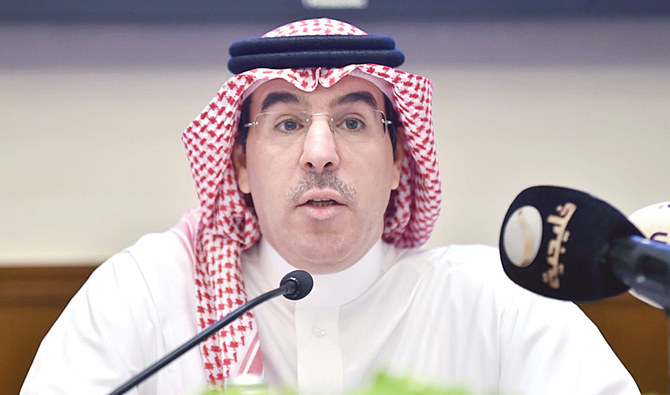RIYADH: The Saudi Human Rights Commission (HRC) has detailed plans for a new collaboration between the HRC and the Office of the UN High Commissioner for Human Rights (OHCHR), the first of its kind in the MENA region. The collaboration was outlined at an event at the Ritz-Carlton hotel in Riyadh on Sunday.
The event launched a workshop centered around two initiatives: The National Mechanism for Reporting and Follow-up (NMRF) and the National Recommendations Tracking Database (NRTD). Both initiatives are within the framework of an MoU signed between the HRC and the OHCHR.
The system will include descriptive information, statistical data and interactive maps. The database will make it possible to measure human rights progress in the Kingdom.
President of the HRC Awwad Al-Awwad opened the event by highlighting the importance of the initiative, as well as drawing attention to Saudi Arabia being the first country to introduce such a venture.
“Utilizing this database will help the HRC to track the implementation of recommendations of the international mechanisms in regards to human rights,” he said.
UN Resident Coordinator in Saudi Arabia Nathalie Fustier congratulated Saudi Arabia on taking the initiative and working to improve human rights mechanisms in the country.
“I am happy to see Saudi Arabia adopting an advanced approach to track recommendations emanating from different international human rights mechanisms. This is a step forward in advancing the link between the sustainable development goals and Saudi Vision 2030,” she said.
HIGHLIGHT
HRC will be working to enhance national capacities in the area of human rights, both within the Kingdom and outside of it. The process will involve the preparation, development and implementation of specialized training programs, including the mechanisms of the UN and international organizations.
Christina Mickey, on behalf of the OHCHR, expressed appreciation to the government of Saudi Arabia for organizing the workshop and on rolling out the NRTD.
She also spoke about Saudi Arabia being considered at the last Universal Periodic Review (UPR) of the UN.
“Just one year ago, Saudi Arabia was considered during the third cycle of the UPR and accepted to implement 182 recommendations fully supported and 31 recommendation partially supported by the Kingdom. Saudi Arabia has received more than 600 recommendations,” she said.
HRC will be working to enhance national capacities in the area of human rights, both within the Kingdom and outside of it. The process will involve the preparation, development and implementation of specialized training programs, including the mechanisms of the UN and international organizations.
The NRTD will help the HRC by monitoring government agencies to ensure that they are implementing human rights conventions, preparing annual reports on the status of the human rights situation in the Kingdom, and raising awareness of international human rights conventions.
Saudi Arabia is one of 36 of the 197 UN states committed to reporting to the UN treaty bodies.














